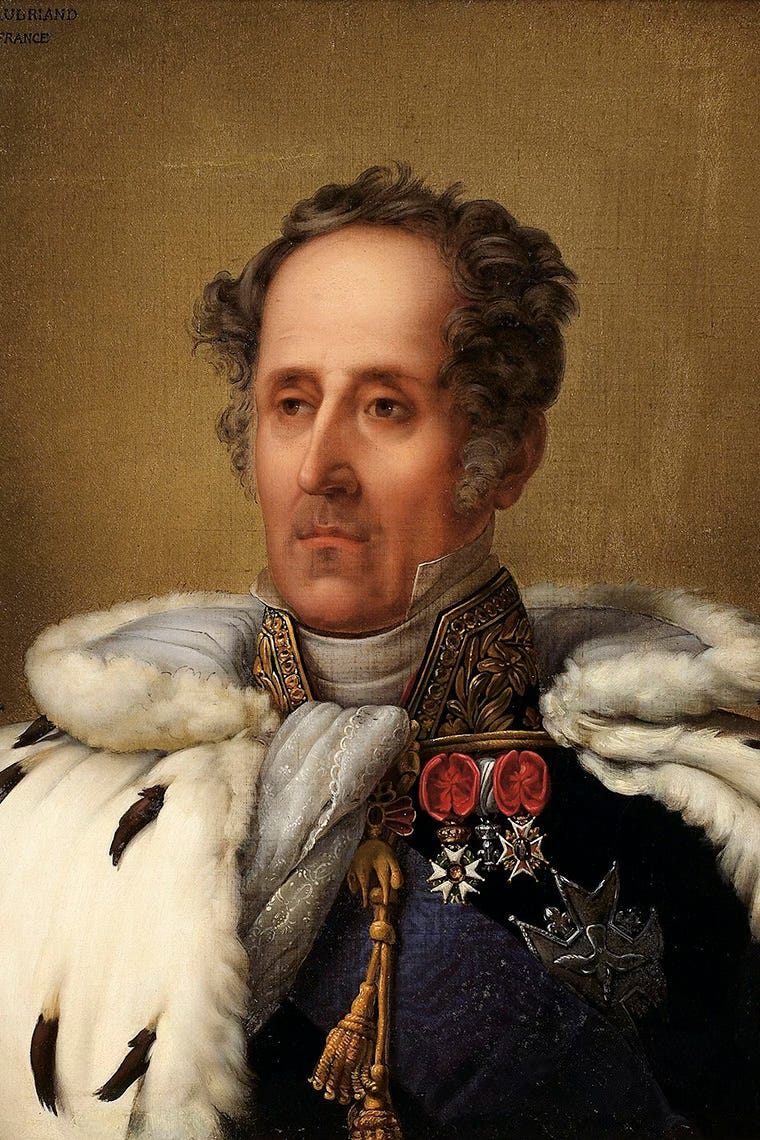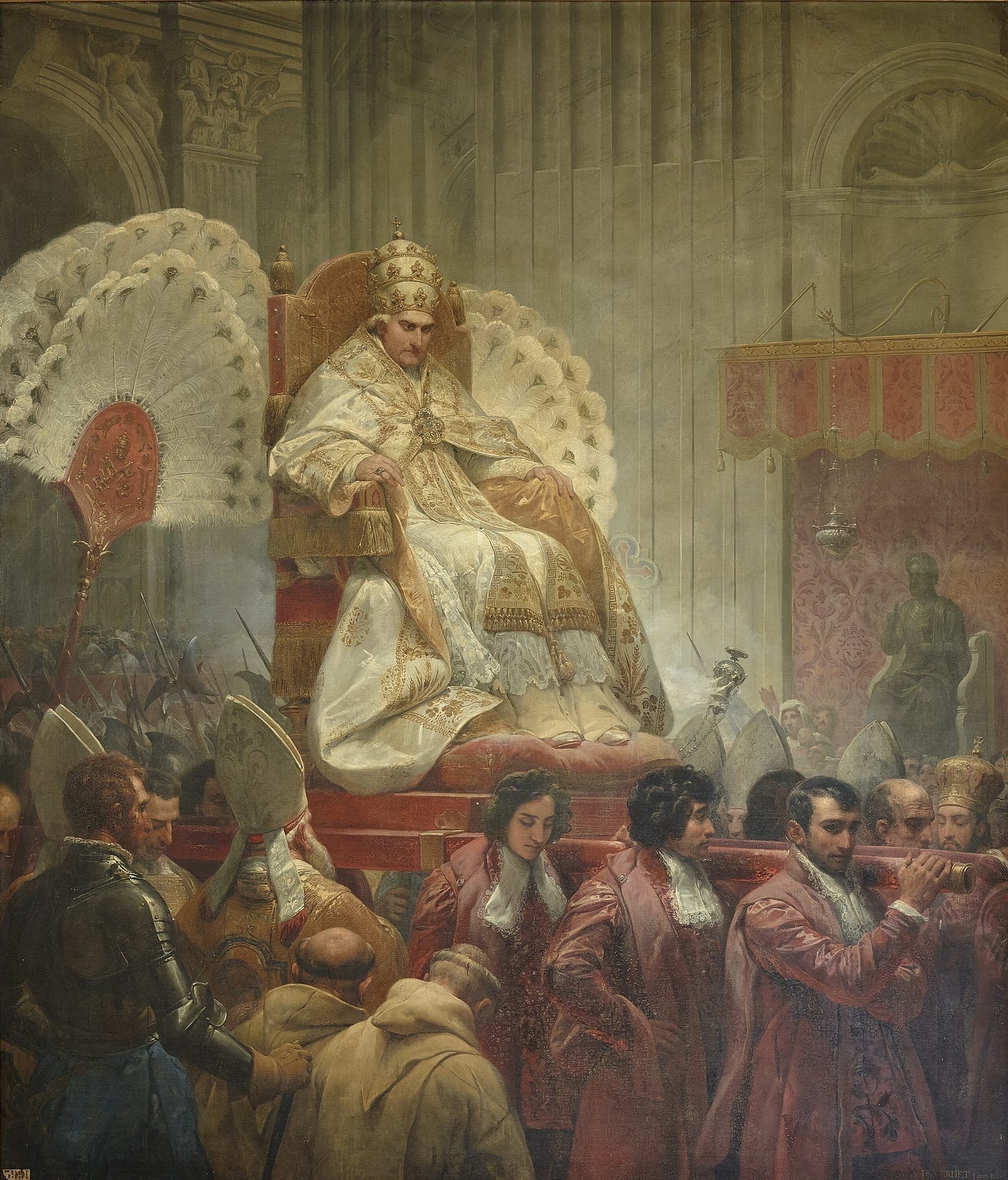Considering Papal Transitions
As a pope’s funeral takes place in Rome today, an experience recorded in 1829 illuminates the constancy of the hallowed traditions to come. Welcome to the salon...

In a letter from Rome on January 15, 1829, François-René de Chateaubriand, the French Ambassador to the Holy See at the time, wrote to his love interest Juliette Récamier about his reaction to the city’s gestalt: “Rome ought to teach me to despise politics. Here liberty and tyranny have equally perished. I see the ruins of the Roman Republic confounded with those of the Empire of Tiberius. Are they not mingled now in the same dust; and the Capuchin, who in passing sweeps with his robe this dust—does he not make still more apparent the vanity of so many vanities?” Chateaubriand was ruminating during the final month of Pope Leo XII’s papacy and was anxious that his choice for a successor, Pius VIII, would be chosen to succeed the ailing pontiff, which did come to pass. He wrote to Juliette on April 15, 1829, about witnessing the Tenebrae, an ancient service during Holy Week, and hearing the nine-voice rendition of Psalm 51 called the Miserere chanted—both taking place in the Sistine Chapel during Pius VIII’s first Holy Week as the leader of the Catholic church.

Chateaubriand was a miserable politician and these two excerpts from his letters make me wish he’d concentrated his efforts on sharing his philosophical reactions of the world around him. He did publish books but none that move me the way so many of his letters do, including these descriptions of the layers of antiquity above and the beauty of a service in the famed church below. He told Juliette, “It is truly incomparable—that light which dies away by degrees; those shadows which envelop the marvels of Michelangelo; all the cardinals on their knees; the new Pope himself prostrated at the foot of the altar, where, a little while before, I had seen his predecessor; that admirable chant of suffering and mercy rising at intervals through the silence of the night; the idea of God dying on the cross to expiate the crimes and infirmities of men; Rome and all its souvenirs under the vaults of the Vatican. Oh, if you had only been there!” He then said, “I even like the tapers, whose smothered light allows a white smoke to escape—emblem of a life suddenly extinguished. What a fine place Rome is, wherein to forget and despise everything, and to die.”
Today, the passing of the torch has begun once again, the threads of history binding contemporary events to the fabric of time as the world buries one pope and prepares to elect another. Salon question for today: The inclusive legacy attributed to Pope Francis measured against the systemized discrimination going on in our country at the moment seems to suggest that no one person—not even one as powerful as a pontiff—can steer us toward less turbulent times. Do you agree?
I felt compelled to consider the momentous events taking place during the next several weeks through the lens of the past today; next week, we return to Edith Wharton’s story.
If you enjoyed this piece, you may want to consider my books The Modern Salonnière and Lives Illuminated. All of my titles are listed on my Amazon author page. Print versions from Bookshop.org are linked here. You’ll also find a number of them on Kindle. To see the sources for the footnotes, click through to my footnotes page.


No one person can prevent turbulence but they do not have to instigate world wide hurrincanes. Hopefully they will choose someone who will continue Francis' legacy.
Chateaubriand was a great master of French prose. His reflection on the antiquity of Rome is moving. It's sobering to think that the papacy is actually the last living organ of the Roman Empire.